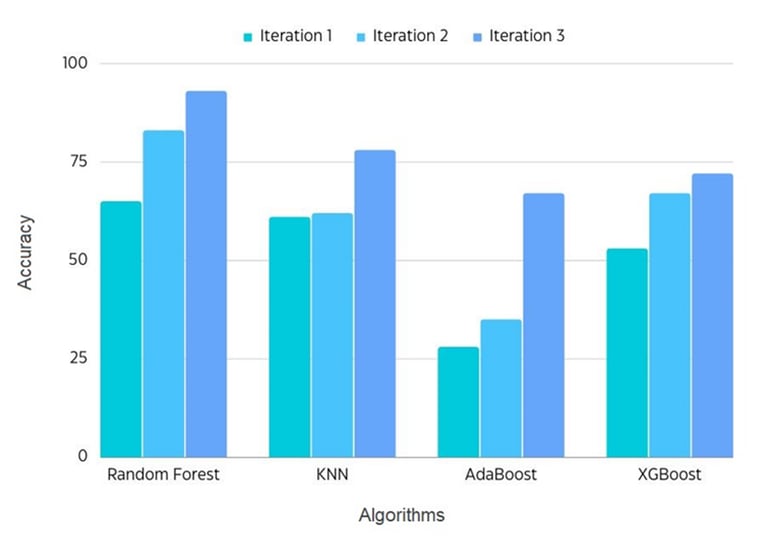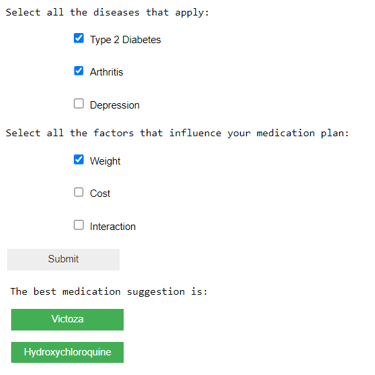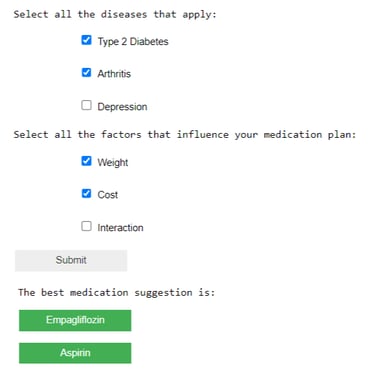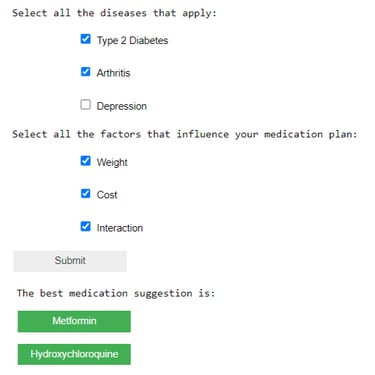
Academic Thesis 2023
Prioritizing Discordant chronic comorbidities (DCC's) and predicting medication using Machine Learning
A Machine learning tool that predicts the combination of medication for patients with Discordant chronic comorbidities. The tool allows the user to select the combination of diseases and the factors that influence the medication treatment plans.
Our motivation
Patients with DCC’s require numerous appointments to ensure quality of care and treatment. Change in treatment plan for one disease can impact the treatment of other. It becomes difficult for healthcare practitioners to make complex decisions for patients with DCC’s. As a Software Engineer, how can we use machine learning to predict an optimal medication combination for patients with DCCs, considering various treatment concerns?
Our vision
We design a tool that predicts an optimal medication combination for patients with Discordant Chronic Comorbidities (DCCs). This tool allows a patient to select a combination of diseases they have and the major treatment concerns (such as cost or interaction of medication, weight gain, etc.) and then uses machine learning algorithms to recommend optimal treatment regimen.
Benchmarking suite
We did benchmarking for Random forest, KNN, AdaBoost and XGBoost. Our results indicate that the Random Forest algorithm is the most suitable for predicting medications for patients with Type-2 diabetes, arthritis, and depression. By achieving an optimal accuracy, it outperformed the KNN, AdaBoost, and XGBoost algorithms. Random Forest indeed emerged as the optimal choice based on its strengths and suitability for the given multi-class, multi-output task.








Outputs
Publication
Sharma, Ichchha Pradeep. "Prioritizing Discordant Chronic Comorbidities and Predicting the Medication Using Machine Learning ." Master's thesis, University of Dayton, 2023.
Chicago Manual of Style (17th edition)
